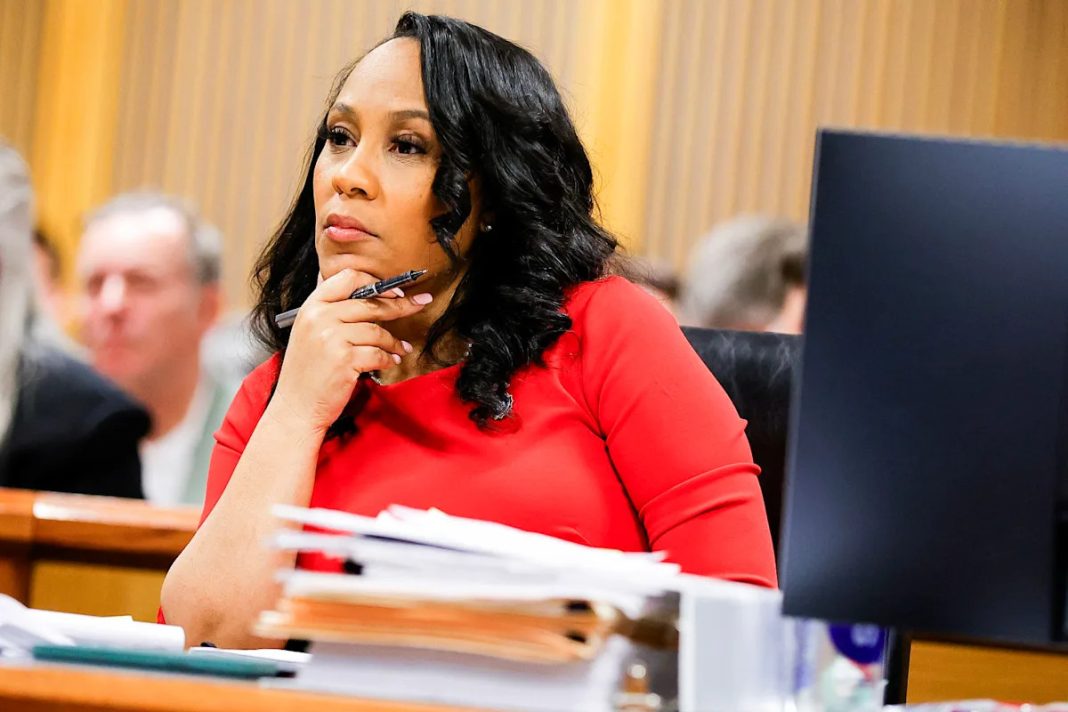In a move that could effectively end the Georgia prosecution of Donald Trump and others, the Supreme Court of Georgia on Tuesday declined to take up Fulton County District Attorney Fani Willis’ attempt to continue prosecuting the state election interference case.
Three state justices dissented from the refusal to consider the appeal, arguing that it presented an important issue worth resolving: whether a lawyer can be disqualified “based on the appearance of impropriety alone.”
While the denial keeps Willis and her office from overseeing the case, it could also effectively end it completely, or at least delay it much longer. When a prosecutor’s office in Georgia is disqualified, finding a new one falls to a state panel called the Prosecuting Attorneys’ Council of Georgia. As an example of how long that process can take and how it can affect the outcome, look at the situation of Georgia Lt. Gov. Burt Jones, whom Willis was disqualified from prosecuting after she hosted a fundraiser for a Democrat who later became Jones’ opponent in the 2022 election. After nearly two years, the Republican head of the panel said he would handle it himself. And then he announced he wouldn’t seek charges against Jones.
And the Jones matter involved just one person. Finding a new prosecutor to take on the complex case against Trump and several other defendants could prove difficult, to say nothing of how a new prosecutor would view the case. Either way, Trump himself would not be prosecuted while he is still in office. His two federal cases were dismissed following his 2024 election victory, and he is appealing his New York state conviction in the only one of his four criminal cases that went to trial before the election.
Like the state’s top court on Tuesday, a state appeals court panel was likewise divided last year when it ruled that Willis and her office should be disqualified from prosecuting the case against Trump and others for their allegedly criminal actions to attempt to overturn the 2020 election that Trump lost to Joe Biden.
“After carefully considering the trial court’s findings in its order, we conclude that it erred by failing to disqualify DA Willis and her office,” the appeals court said of the prior ruling from the trial judge, Scott McAfee.
Trump and other defendants in the case had argued Willis improperly profited from the hiring of special prosecutor Nathan Wade, with whom she had a romantic relationship, and that it gave the elected district attorney an impermissible stake in the prosecution. McAfee said the defense failed to prove an actual conflict of interest but that the appearance of impropriety meant that either Willis (and her office) or Wade had to go. Wade resigned that same day.
“The remedy crafted by the trial court to prevent an ongoing appearance of impropriety did nothing to address the appearance of impropriety that existed at times when DA Willis was exercising her broad pretrial discretion about who to prosecute and what charges to bring,“ the appeals court said in the opinion by Judge Trenton Brown, who was joined by Judge Todd Markle.
A dissenting appeals court judge said the majority’s opinion was unsupported by law and called it particularly troubling that the majority interfered with the trial judge’s discretion. “Given the unique role of the trial court and the fact that it is the court which has broad discretion to impose a remedy that fits the situation as it finds it to be, we should resist the temptation to interfere with that discretion, including its chosen remedy, just because we happen to see things differently,” Judge Ben Land wrote.
Subscribe to the Deadline: Legal Newsletter for expert analysis on the top legal stories of the week, including updates from the Supreme Court and developments in the Trump administration’s legal cases.
This article was originally published on MSNBC.com

